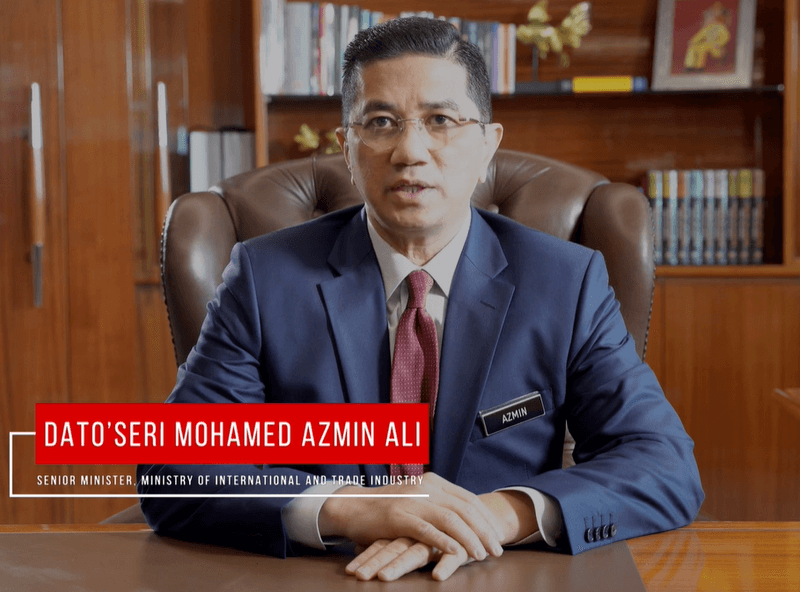Adhering to Global Labour Laws
MITI Organised an Online Discussion that Highlighted the Importance of Compliance with International Labour Laws

The government is helping Malaysian SMEs to understand and comply with international labour laws so that they do not face issues exporting products and services overseas.

(Clockwise from top left) Rhymie, Philip, Chua, Jai Shankar, Mohd Asri, Balan and Norazman
In a webinar session organised by the International Trade and Industry Ministry (MITI), the discussion highlighted the importance of compliance with international labour laws to ensure the ease of market access for Malaysian exporters.
Malaysia External Trade Development Corp (Matrade) director of oil and gas, chemical and energy division Jai Shankar moderated the session.
Kicking off the “Forced Labour: The UK, US and Australian Perspective” webinar, MITI deputy secretary-general for industrial development Datuk Norazman Ayob shared that labour and workers rights issues have impacted a Malaysian company within the country and the international markets particularly in the US and Europe.
“The US Customs and Border Protection (CBP) for example restricted certain goods in Malaysia that have caused a loss in revenue and impaired the company’s reputation,” he said.
There are three reasons, he said, why companies would want to pay attention to having good labour practices including market access to international markets, cost of expansion as investors are placing importance on compliance on Environment, Social and Corporate Governance (ESG) and SME continued integration into the regional and global supply chain as customers are informed and demanding on labour compliance.
There have been 1,322 enforcement and inspection activities in Peninsular Malaysia which included 1,305 employers since the amendment of Workers’ Minimum Standards of Housing and Amenities Act 1990 (Act 446) on Sept 1, said Labour Department deputy director-general (operational) Mohd Asri Abdul Wahab.
Fellow speaker from the Labour Department, senior assistant director enforcement division (Atip unit) Rhymie Mohd Ramli shared 12 indicators of forced labour that are also part of the checklist used when conducting inspections.
Some indicators included abuse of vulnerabilities, withholding of wages, restraint of movement, deception of recruitment, debt bondage, non-conducive place of work or accommodation and passport retention, which he said, also relate to offences under the Passports Act.
He shared a six-step action plan focused on accommodation.
“The first would be an inspection of the core activity of the labour department, the technical committee for the headquarters of companies such as the rubber industry and plantation, communication plan involving the mass media to disseminate information.
“Fourthly, the cooperation with Socso and Immigration Department, daily inspection focusing on accommodation from December 2020 to February 2021 and a task force divided into four zones focusing on forced and child labour,” he added.
Another speaker, International Organization for Migration (IOM) national programme officer for counter-trafficking and labour migration Joanne Chua shared the modern slavery laws in the UK, US and Australia as well as the need for Malaysia to adhere to international laws.
“These are major importing nations, a lot of Malaysian businesses including SMEs export to these countries and now there is increased attention to Malaysia with the news about the CBP ban of palm oil and rubber gloves, so Malaysian businesses must take this issue seriously,” she said.
She added that Malaysian businesses that supply to these countries should be prepared to comply with reporting requirements and requests for information.
We need to protect workers’ rights, she said, in line with international standards in order to prevent legal, financial and reputational risks.
Sharing his experience in forced labour laws, in particular a US ban on local company WRP, Thomas Philip founder and managing director Mathew Thomas Philip also shared the timeline of the case.
He added that the US lawyers advised him to focus efforts on taking action to address the concerns that they have such as passport retention and poor living and working conditions.
He opinioned, “Ultimately, it was not a legal problem, it’s a human problem. It’s the problem of WRP looking at these workers and not treating them as humans.”
“All the problems that WRP was facing were solvable and looked through a different perspective. The conditions were not ideal, they needed to be improved and when we worked on it earnestly and genuinely I realised that we can solve all of these problems and we worked towards solving that,” he added
Another speaker, Seagate Technology senior director for sustainability Balan Shanmuganathan shared the elements of an effective programme.
Management commitment is of utmost importance, he said, adding that senior management has to understand the complexity of foreign migrant workers hiring process, the risk and due diligence to manage this.
As people are not aware of the capacity-building process, he said, it is important that companies conduct training and webinars and work with local NGOs on compliance with the hiring process.
“Control does not stop with the factory, there needs to be a process in place to continuously engage with your workers through surveys.
“Finally, remediation, the plan is to conduct the first four to reduce the risk of forced labour, there is a need for a process if there are cases you can go through that process and remediate,” he added.











